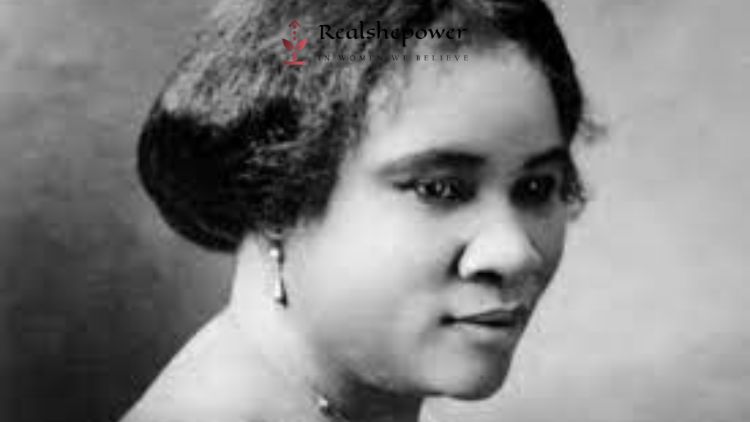Madam C.J. Walker: America’s First Self-Made Female Millionaire


Madam C.J. Walker was an African American businesswoman who is widely considered to be the first black self-made millionaire. Her company, which manufactured hair care products, cosmetics, and other products, became one of the largest black-owned businesses in the United States. Walker’s success story has inspired many women of all races to pursue their own dreams and reach for excellence.
Early Life
Sarah Breedlove was born on a plantation in Delta, Louisiana, on December 23, 1867, as one of six children to Owen and Minerva Anderson Breedlove, former slaves who became sharecroppers after the Civil War. Walker, who was orphaned at the age of seven, lived with her older sister Louvenia and worked in the cotton fields. Walker married Moses McWilliams at the age of 14 to escape her abusive brother-in-law. Walker became a single parent to her two-year-old daughter Lelia (later known as A’Lelia) after her husband died in 1887.
Walker moved to St. Louis where three of her brothers lived and worked as barbers. She labored the next 18 months as a washerwoman, often earning as little as $1.50 per day.
Around 1890, she experienced hair loss due to poor diet and lack of hair maintenance.
As a result, she created a new hair care routine that involved washing her hair more frequently and using a mixture of beeswax, copper sulphate, sulphur, and perfume to mask the sulphur odour.
Soon she started selling her first hair care product door-to-door in black neighborhoods in St. Louis.
Madam Walker’s Wonderful Hair Grower
The following year, Walker relocated to Denver, Colorado, married advertising executive Charles Joseph Walker, changed her name to “Madam C.J. Walker,” and, with the help of $1.25, started her own company, “Madam Walker’s Wonderful Hair Grower,” which sells hair products and straighteners for women of colour.
Walker placed advertisements in black newspapers all across the country, and by granting franchises and accepting mail orders, she quickly expanded her geographic reach throughout a country where segregation frequently made travel challenging for African-American women.
In 1910, she relocated close to Indianapolis and established a factory, a beauty school, and a salon there.
In 1913, she expanded her business outside of the United States by taking her goods to Central America and the Caribbean. In the meantime, her daughter Lelia, who would go on to become the Harlem Renaissance socialite known as A’Lelia Walker, moved into their newly constructed upscale Harlem townhouse and established the opulent Walker Salon.
In 1916, Walker moved to New York to be with her daughter.
Walker’s company expanded quickly, with revenues topping $500,000 in the year before she passed away. Her assets totaled over $1 million and included homes in Harlem, Chicago, Pittsburgh, and St. Louis. in addition to the estate “Villa Lewaro” in Irvington, New York.
Walker was able to defy social conventions thanks to her financial success and live in a home created by an African-American architect, Vertner W. Tandy, in a posh New York City suburb. Now a National Historic Landmark, her house is known as Villa Lewaro.
Humanitarian Work
Her humanitarian and political activism expanded along with her fortune. Walker donated to the YMCA, paid the tuition for six African American students at Tuskegee Institute, and got involved in the fight against lynching by contributing $5,000 to the NAACP’s initiatives. Walker made a last-minute change to her will just before passing away from kidney failure, leaving two-thirds of her company’s future net income to charity in addition to thousands of dollars to several people and institutions of higher learning.

